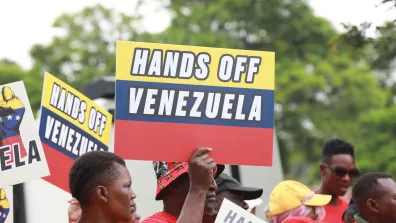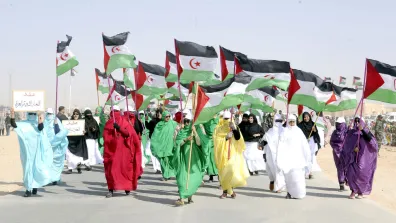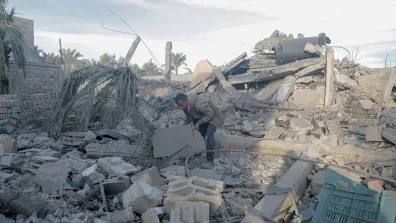Gdeim Izik Political Prisoners, Occupied Western Sahara
We were asked by our Saharawi partners to write a letter to the Secretary of State for Foreign and Commonwealth Affairs expressing our deep concerns over the severe sentences handed out by the Moroccan court against the Gdeim Izik 24 Saharawi activists. The letter has been signed by several trade unions' General Secretaries.
Dear Foreign Secretary
WE EXPRESS OUR DEEP CONCERN OVER THE SEVERE SENTENCES HANDED OUT BY THE MOROCCAN COURT AGAINST THE GDEIM IZIK 24 SAHARAWI ACTIVISTS.
On 19th of July, 2017, the Moroccan Civil Court in Salé (Morocco) followed the Moroccan Martial Court and handed down severe sentences against 24 Saharawi civilian activists.
The Salé Court of Appeals sentenced the defendants who were involved in setting-up the Gdeim Izik protest camp in Western Sahara in 2010, widely regarded as the first spark of the Arab uprisings, to prison terms ranging from two years to life imprisonment.
The politically motivated and unjust sentences against the Saharawi human rights activists, including life imprisonment, were handed down in a trial that was fraught with legal irregularities as attested to by the independent and international observers that managed to follow the trial. A host of international human rights organizations and groups have also expressed their deep concern about the proceedings of this unjust trial.
Amnesty International has stated that “During the trial most defendants told the court they were tortured into ‘confessing’ or incriminating themselves or others. If the court was serious about offering them a fair trial, it would have conducted proper investigations into torture allegations by now, or excluded questionable evidence during the hearings,”
Human Rights Watch, for its part, issued in a press release that “The doctors examined the defendants in February and March, almost seven years after the alleged torture took place. The doctors’ reports note the types of torture and other mistreatment that each of the defendants says he underwent during his arrest and interrogation shortly after arrest in late 2010. Their allegations include severe beatings, sometimes while suspended by the wrists and knees, sexual assault including rape with an object, and pulling out fingernails and toenails.”
In addition the International Bar Association’s Human Rights Institute IBAHRI has considered that “The re-trial by the Rabat Court of Appeals largely upheld the sentences issued, with eight of the accused sentenced to life imprisonment. As in the previous military trial, the civilian court failed to adequately investigate the defendants’ allegations that their confessions were extracted under torture. Where medical examinations were carried out to assess the defendants’ allegations of torture, they were performed almost seven years after the alleged torture took place.”
We therefore urge the UK Government to remind the Moroccan authorities of their obligation to ensure prompt and impartial investigation wherever there is reasonable ground to believe an act of torture has been committed in their country. Morocco has ratified the UN Convention against Torture and Other Cruel, Inhuman or Degrading Treatment or Punishment in 1993. As a state party to the Convention, Morocco is required to conduct a probe even without a complaint from a victim. The Convention further provides that any evidence obtained through torture is inadmissible in court. It is clear that, in the case of these defendants, Morocco has failed to meet its obligations.
We, the undersigned, encourage the UK government to seek the reversal of such arbitrary rulings by the Moroccan Civil Court in Salé, and the release of all the Saharawi political prisoners in Moroccan jails, and to play a proactive role in order to reach a democratic, lasting and just solution to this long running conflict, based on the inalienable right of the Saharawi people to self-determination.
Signatories:
Asad Rehman - Executive Director. War on Want, Mick Whelan – General Secretary, ASLEF, Ronnie Draper – General Secretary, Bakers, Food & Allied Workers’ Union (BFAWU), Matt Wrack – General Secretary, Fire Brigades Union (FBU), Tim Roache – General Secretary, GMB, Chris Keates – General Secretary, NASUWT, Kevin Courtney – General Secretary, National Education Union (NEU), Mick Cash – General Secretary, RMT, Manuel Cortes – General Secretary, Transport Salaried Staffs’ Association (TSSA), John Hendy QC – Old Square Chambers, London


